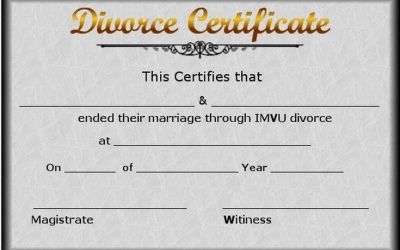Court Marriage for Muslims: Interfaith Union Solutions in 2025
Table of Contents ▼
Can Muslims marry non-Muslims in civil court? Here’s how court marriage for Muslims addresses interfaith marriage challenges.
Many Muslim and non-Muslim couples who wish to marry often wonder if civil court marriage is a viable option. The answer is yes, in many places, court marriage for Muslims with non-Muslims is not only allowed, but it’s becoming a preferred choice for those who face religious barriers in traditional settings.
This blog outlines the process, legal aspects, and considerations involved in court marriage for Muslims, especially when one partner follows Islam and the other follows a different faith.
Understanding Court Marriage for Muslims
A court marriage for Muslims is a marriage legally recognized by the government, separate from any religious institution. This legal framework allows Muslim and non-Muslim couples to marry even if their religious beliefs differ, sidestepping the barriers that may arise from religious restrictions.
In contrast, religious marriages such as the nikah follow Islamic teachings, while court marriage for Muslims adheres to the laws of the state. This difference opens a pathway for Muslim/non-Muslim couples to marry without having to navigate the sometimes complex and restrictive religious marriage processes.
Don’t know how much a court marriage costs? Explore Abu Dhabi Court Marriage Fee.
Legal Frameworks Across Different Jurisdictions
Marriage laws differ greatly by country, and this diversity can either help or hinder court marriage for Muslims and non-Muslim couples. Some jurisdictions have modernized their laws to accommodate interfaith marriages, while others still maintain restrictions based on religious doctrines.
For example, recent reforms in the UAE allow Muslim and non-Muslim couples to marry under civil law rather than Sharia law, which historically posed challenges for interfaith unions. These changes provide more flexibility, but they come with certain requirements, such as residency and documentation.
Couples planning a court marriage for Muslims should carefully research the jurisdiction they are marrying in, ensuring they meet all the necessary legal criteria.
Religious Considerations vs. Legal Realities
Although court marriage for Muslims provides a legal pathway for Muslim/non-Muslim couples, Islamic jurisprudence sets forth specific rules regarding interfaith marriages. While opinions can vary between different schools of thought, the general guidelines include:
- Muslim men are permitted to marry women from Abrahamic faiths (Jews and Christians), referred to as “People of the Book.”
- Muslim women traditionally face stricter rules and are generally expected to marry Muslim men.
While these religious considerations may shape the couple’s spiritual view on marriage, court marriage for Muslims bypasses religious restrictions, allowing couples to formalize their union according to civil law.
Practical Considerations for Muslim + Non-Muslim Civil Marriages
Couples interested in court marriage for Muslims should keep the following practical considerations in mind:
Documentation Requirements
To complete a court marriage for Muslims, certain documentation is required. These include:
- Valid passports and identification
- Birth certificates (often apostilled or legalized)
- Proof of single status or certificates of no impediment
- Divorce decrees, if applicable
- Translations of documents (if necessary)
Completing all paperwork correctly is critical, as missing documents or inaccurate forms can delay the marriage process. Couples should seek advice from consultants who are familiar with local requirements to ensure a smooth procedure.
Legal Implications
Marriage through civil court also has legal ramifications that couples should understand, including:
- Property and inheritance rights
- Custody of children, if applicable
- Divorce laws and procedures
- Marriage recognition when returning to the couple’s home country
- Taxation and financial obligations
To ensure clarity, couples are encouraged to consult with legal experts in both the marriage jurisdiction and their country of residence to better understand the full legal implications of their union.
Planning Timeline for Civil Muslim Marriage
Proper planning is key for those considering court marriage for Muslims abroad. Here is a recommended timeline:
- 3-6 Months Before: Begin researching jurisdictions and gathering essential documents.
- 2-3 Months Before: Select the jurisdiction for marriage and start the document authentication process.
- 1-2 Months Before: Submit initial applications and arrange for travel.
- 2-4 Weeks Before: Double-check all requirements with the relevant authorities.
- Arrival: Arrive at least a few days before the wedding to resolve any unexpected issues.
Starting early ensures that there is ample time for addressing potential challenges and makes the process less stressful.
FAQs
Will our court marriage for Muslims be recognized when we return home?
Recognition of a court marriage for Muslims performed abroad depends on the country of residence. While most countries accept legally performed marriages from other nations, some may require additional registration or may not recognize marriages that conflict with local laws.
Can we include religious elements in our civil ceremony?
Yes! Many civil ceremonies allow couples to incorporate personalized vows, symbolic acts, and even religious elements, as long as the legal portion of the ceremony adheres to the state’s requirements.
What if our families disapprove?
Family disapproval is a common issue in interfaith marriages. Professional consultants can help couples navigate these sensitive matters and offer strategies to find a balance that respects both families’ concerns and the couple’s personal choices.
Conclusion
Court marriage for Muslims provides a practical and effective solution for Muslim and non-Muslim couples wishing to marry. As more jurisdictions offer legal pathways for interfaith marriages, the process becomes easier for couples who want to formalize their union while respecting both legal and religious guidelines.
With careful planning, proper documentation, and legal counsel, interfaith couples can marry without unnecessary obstacles. If you’re considering court marriage for Muslims, contact us today to start the process and ensure your marriage is legally and spiritually fulfilling.

